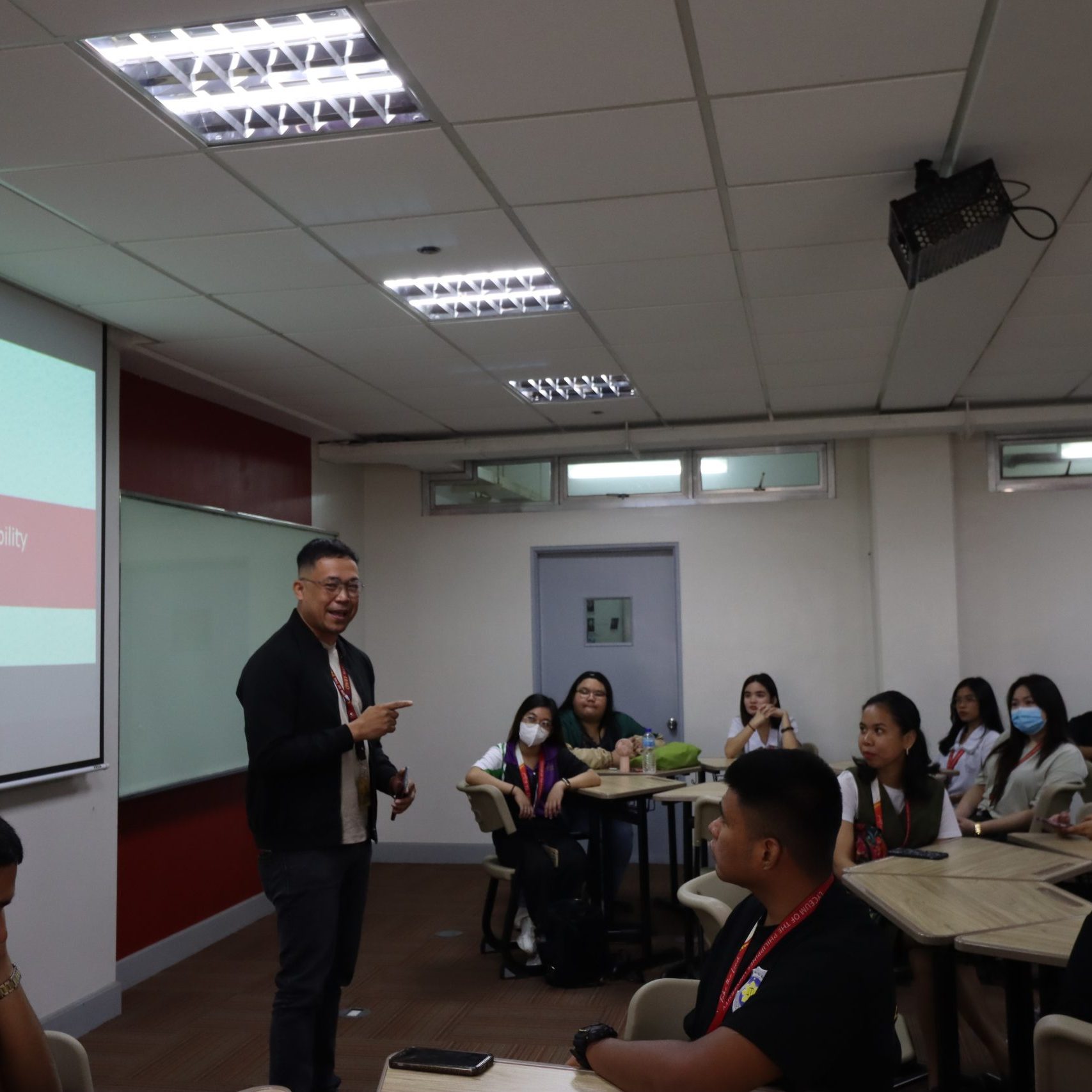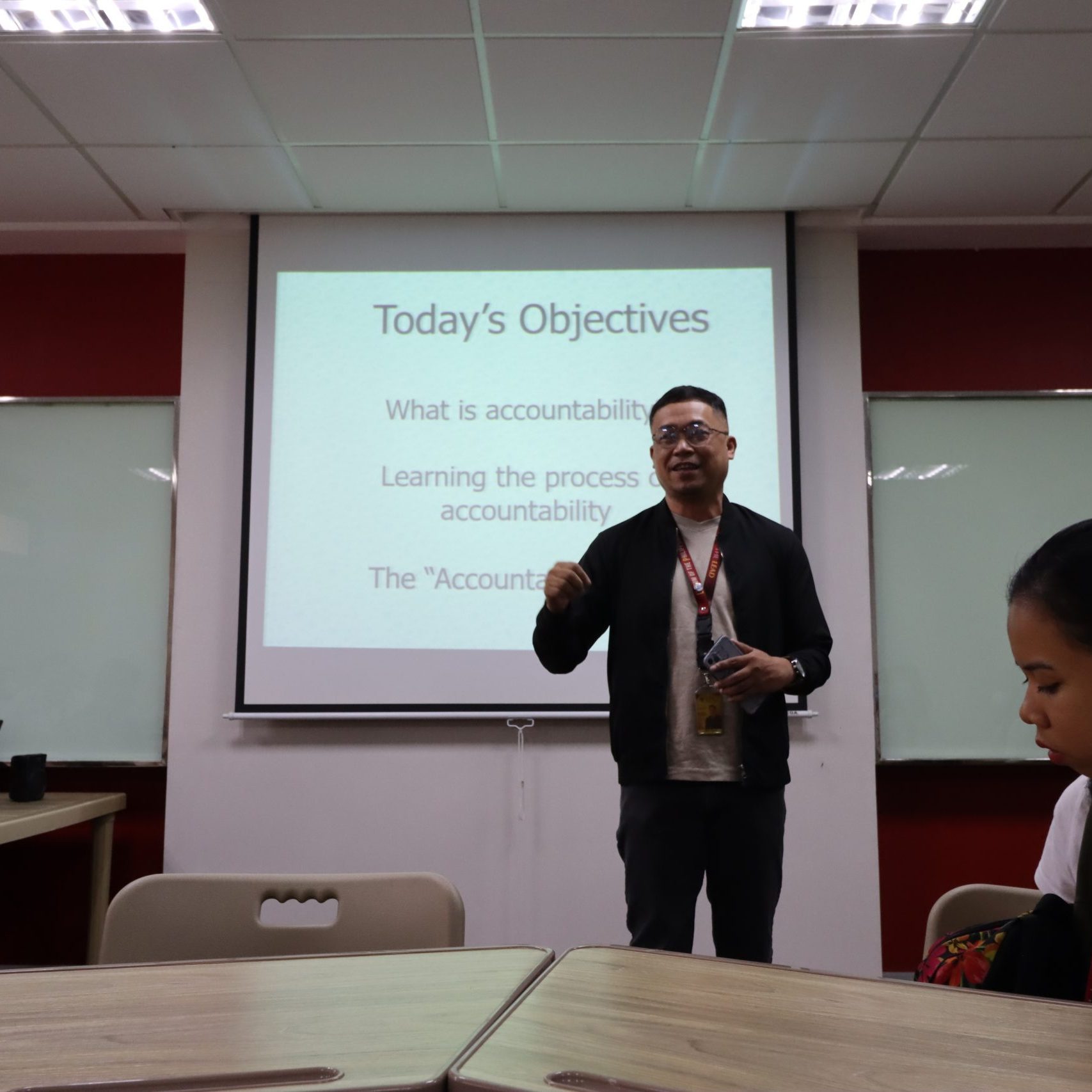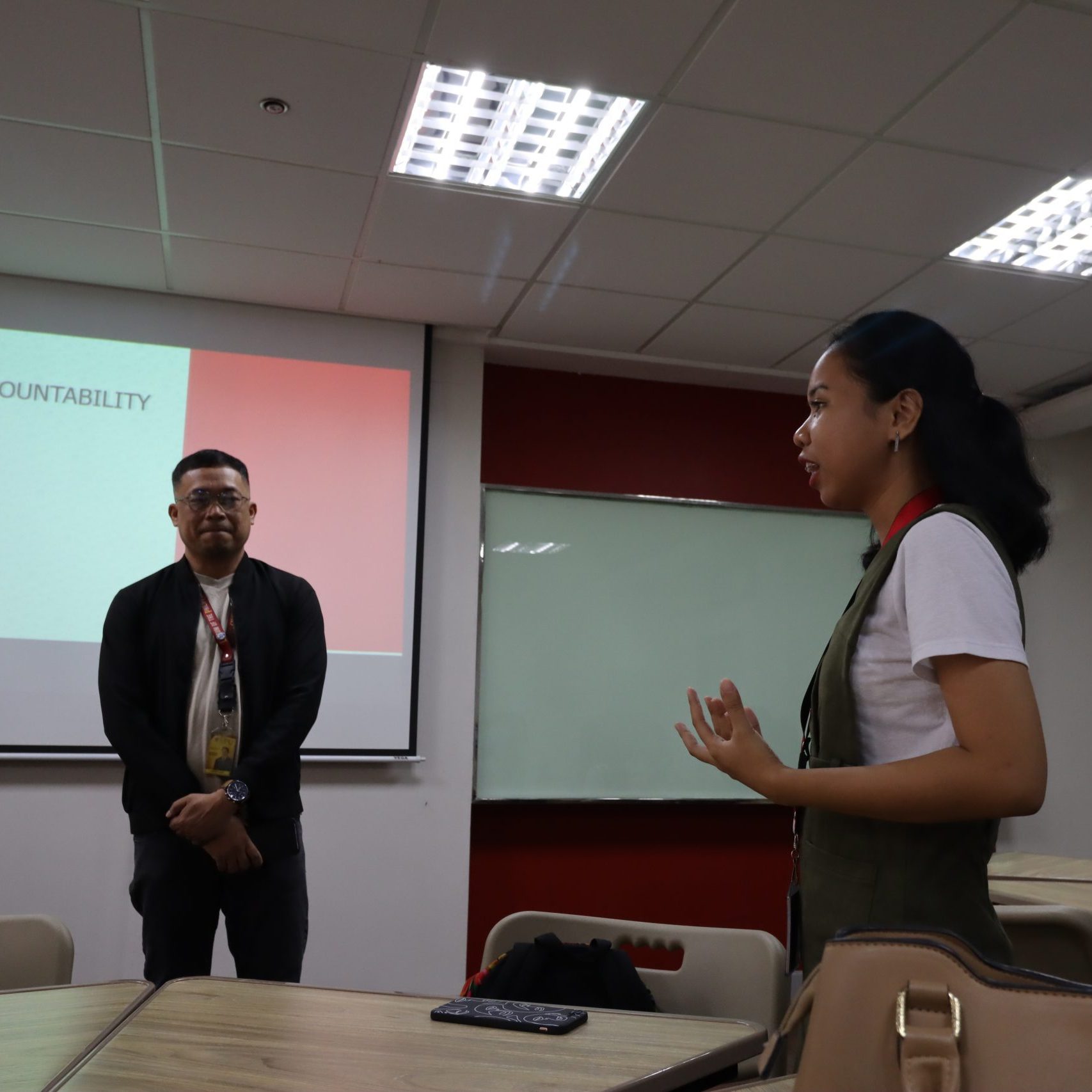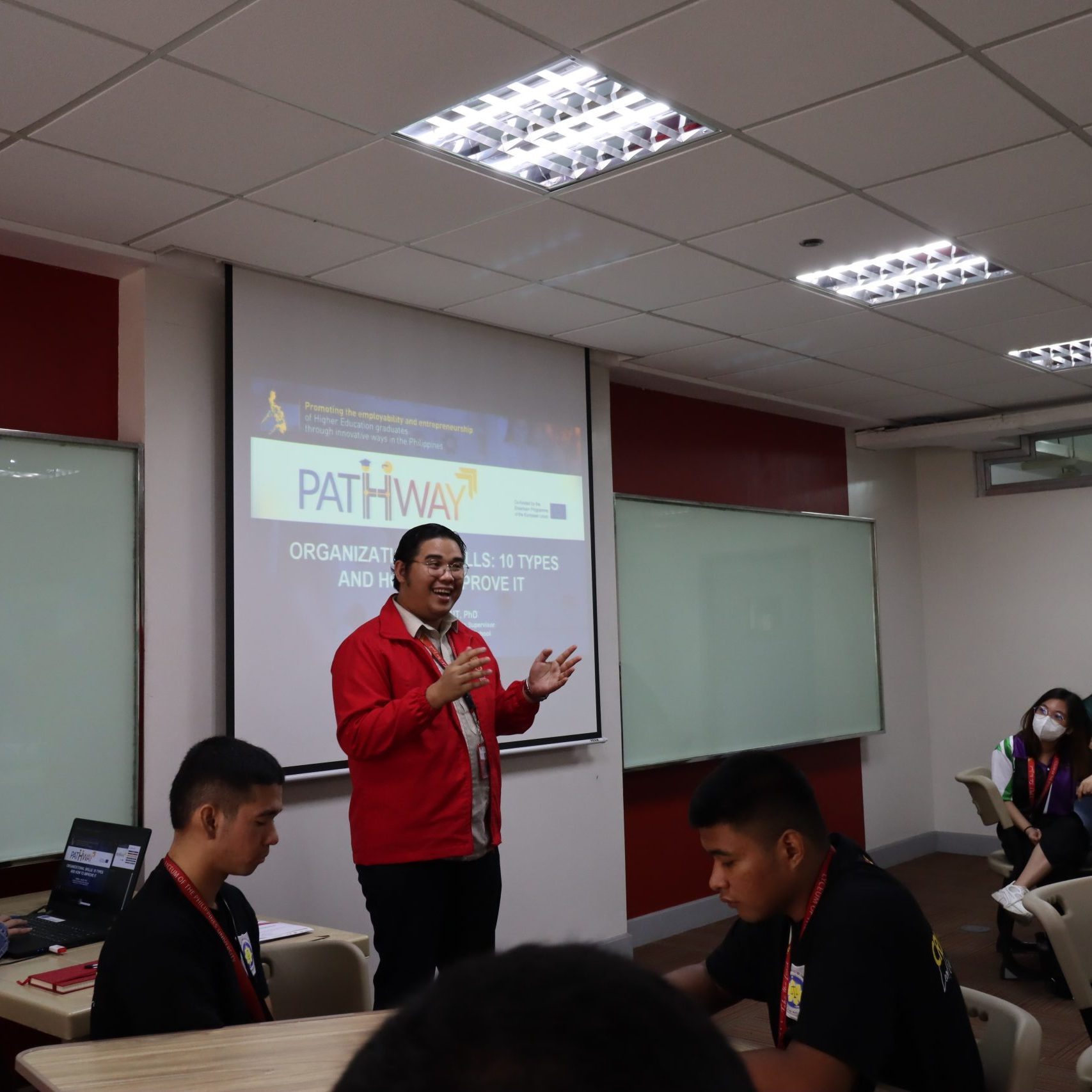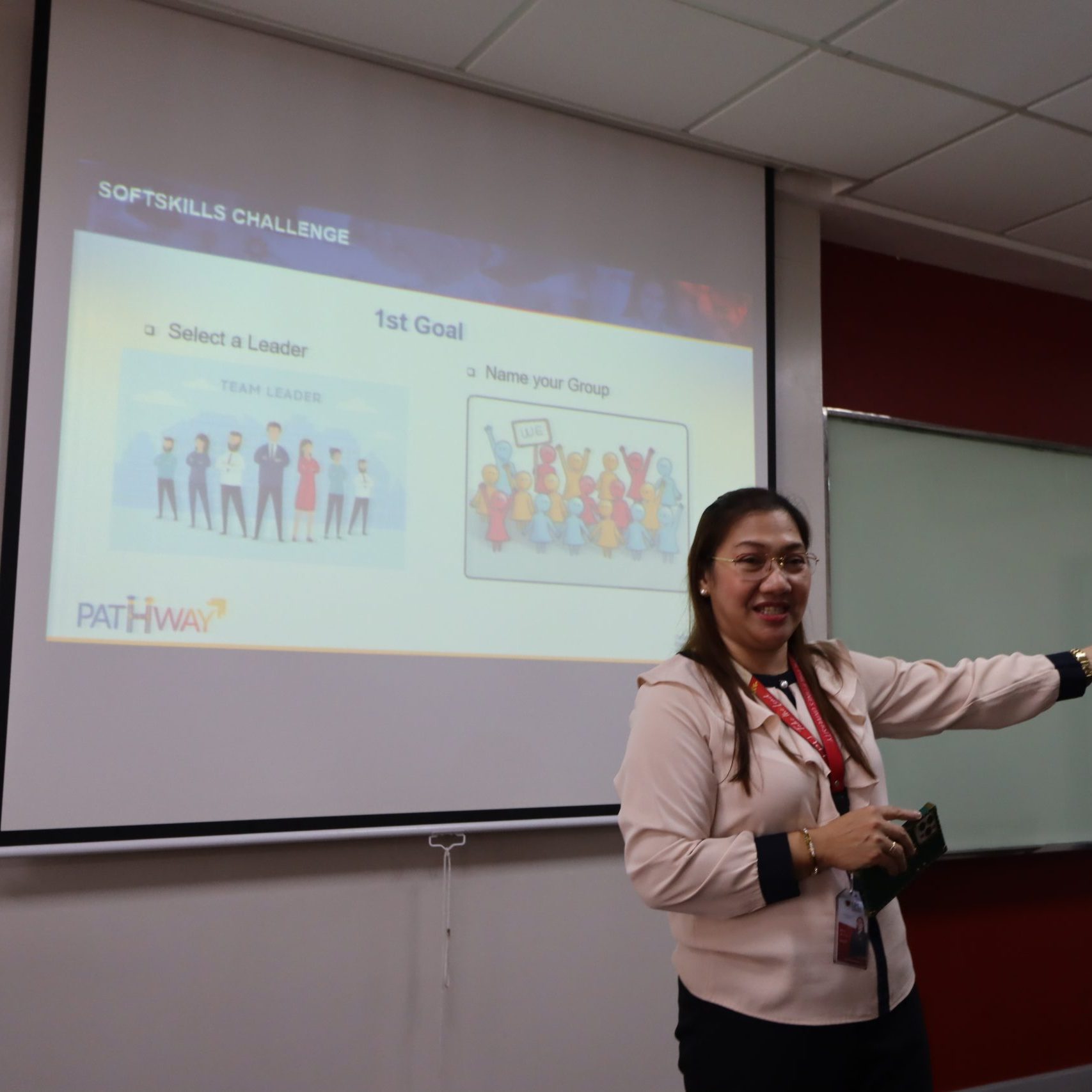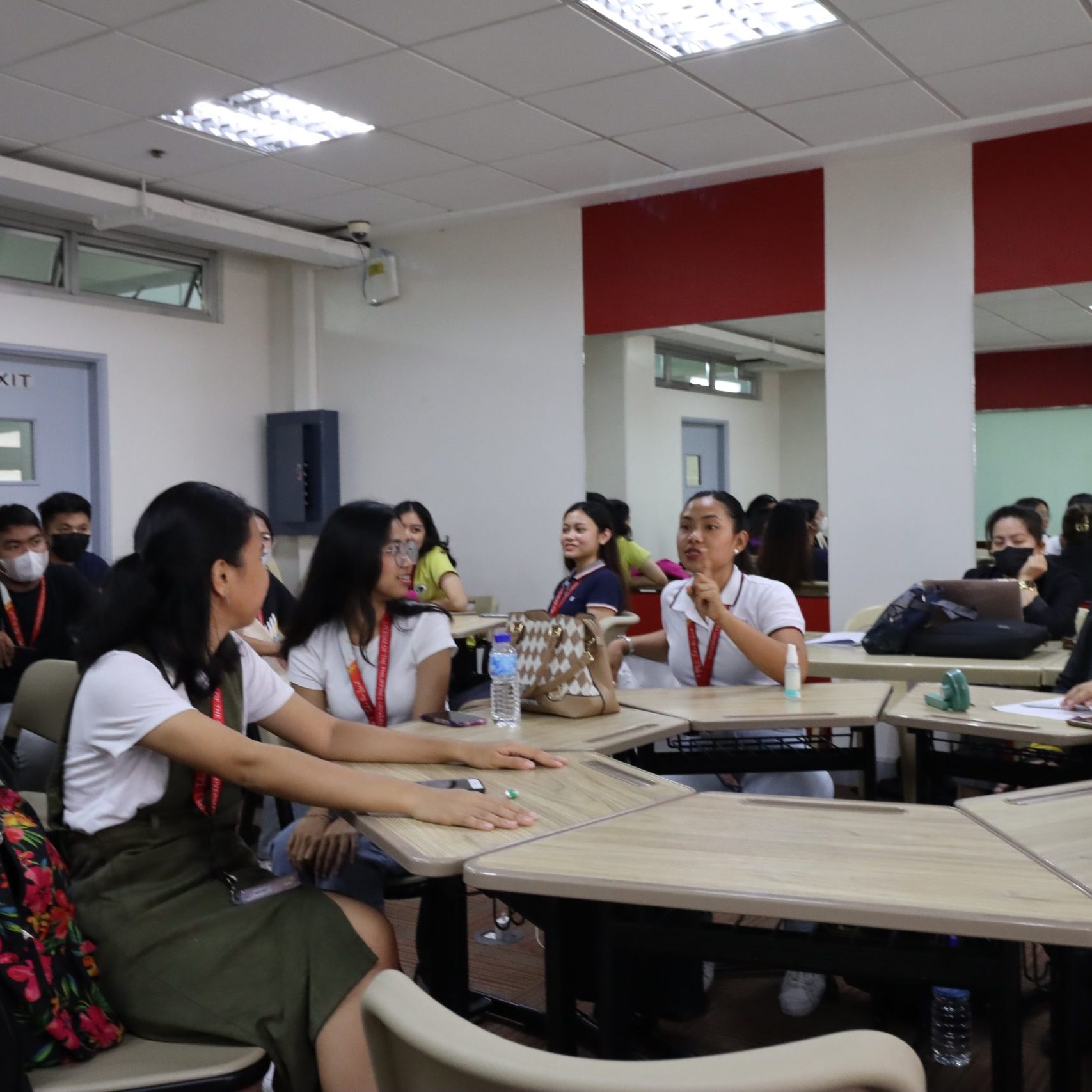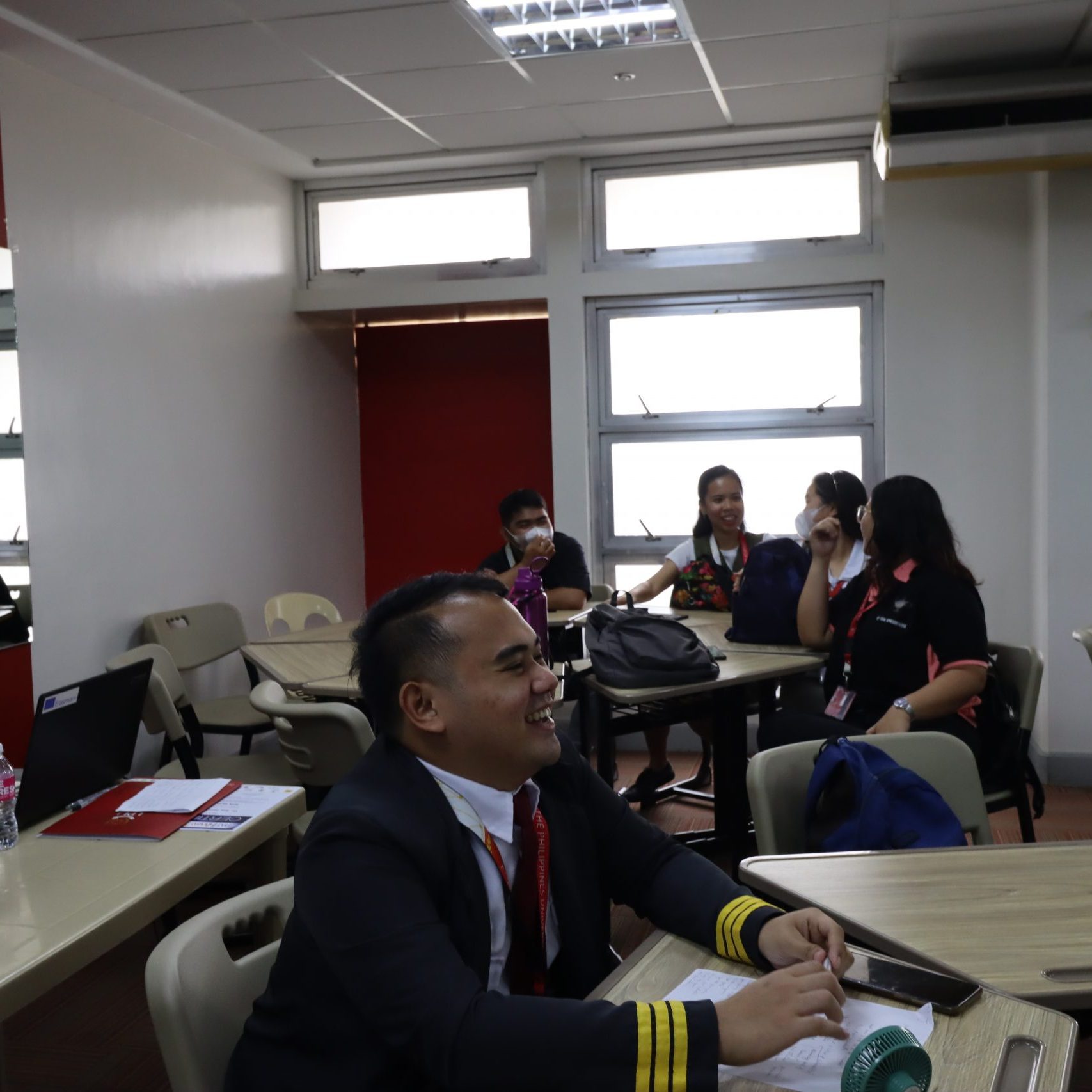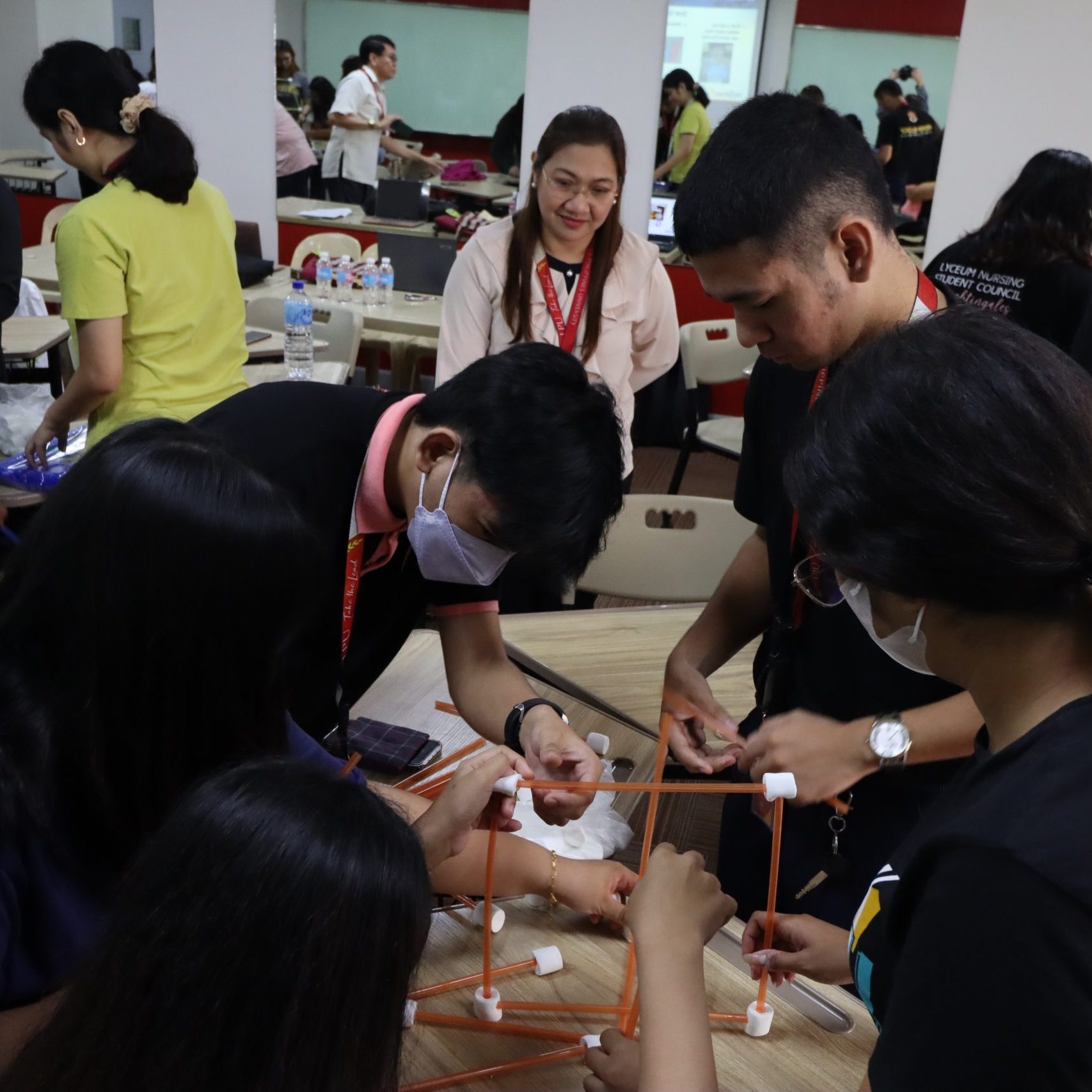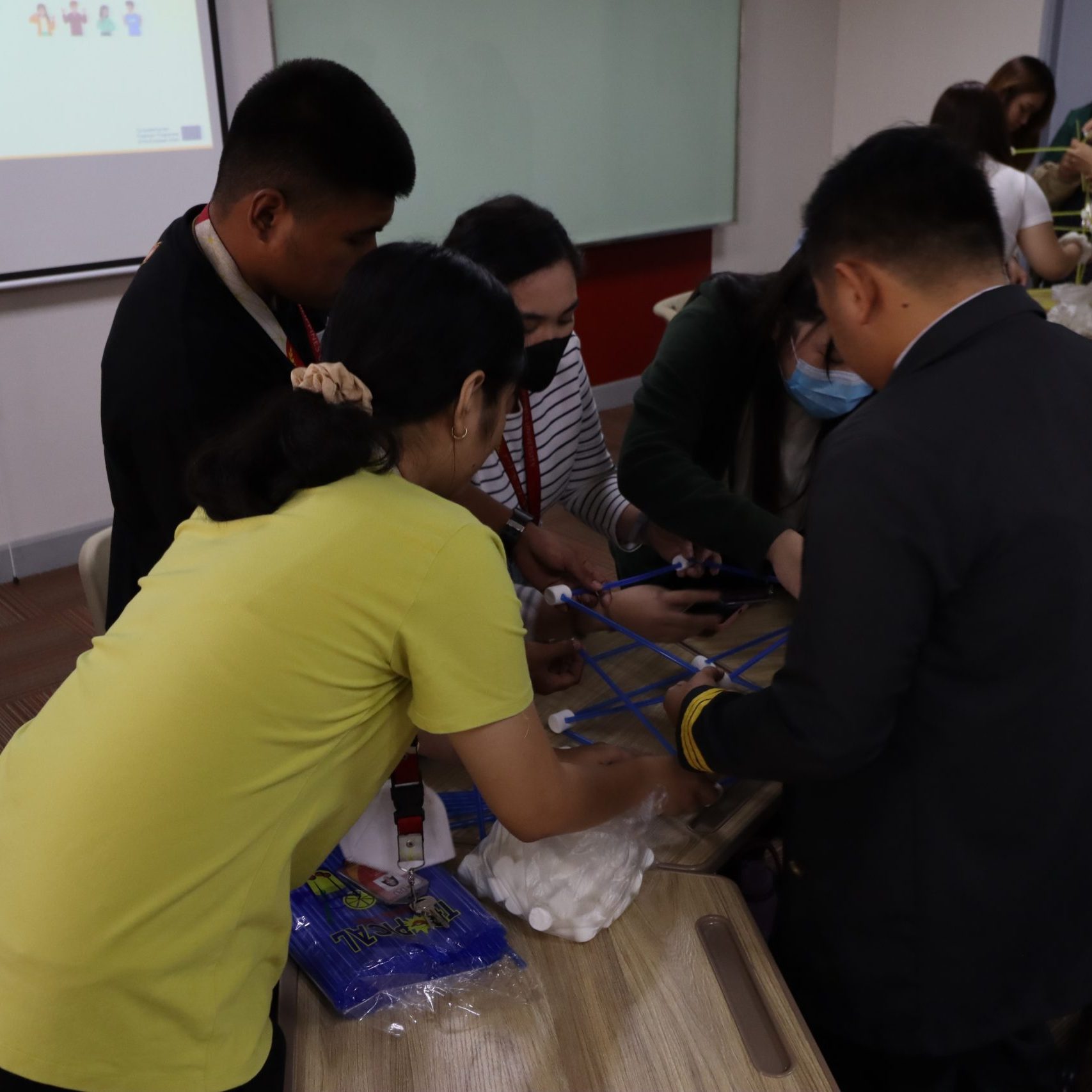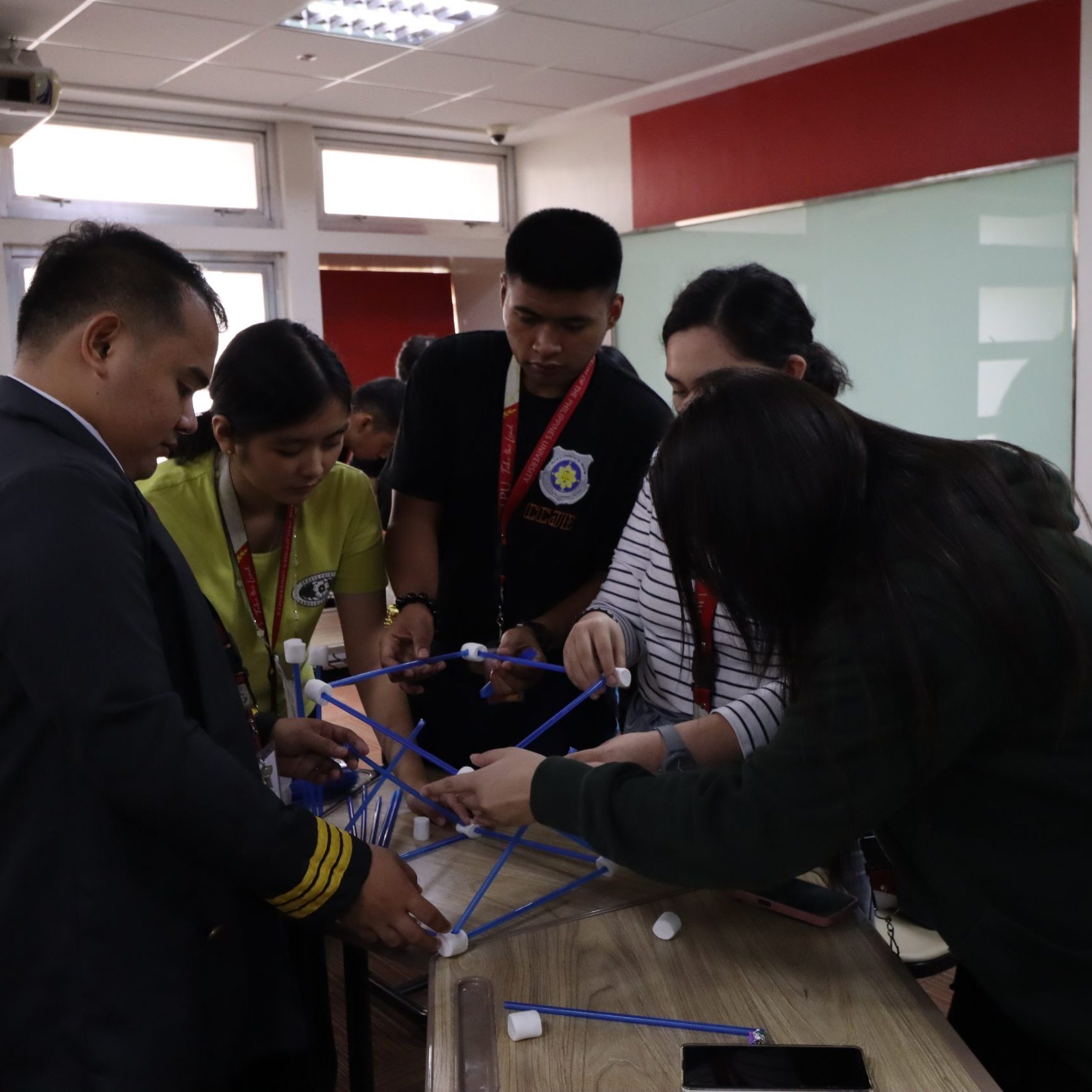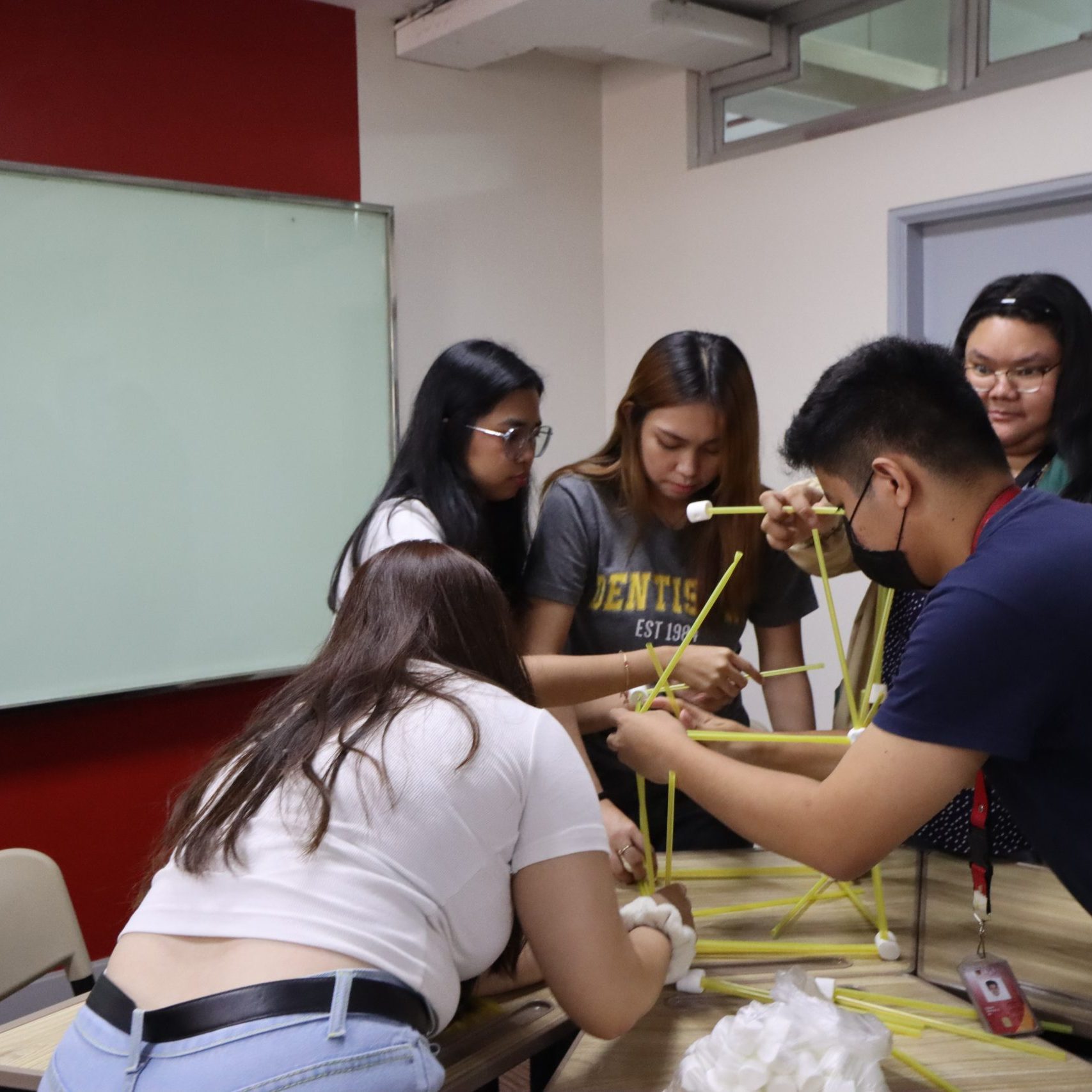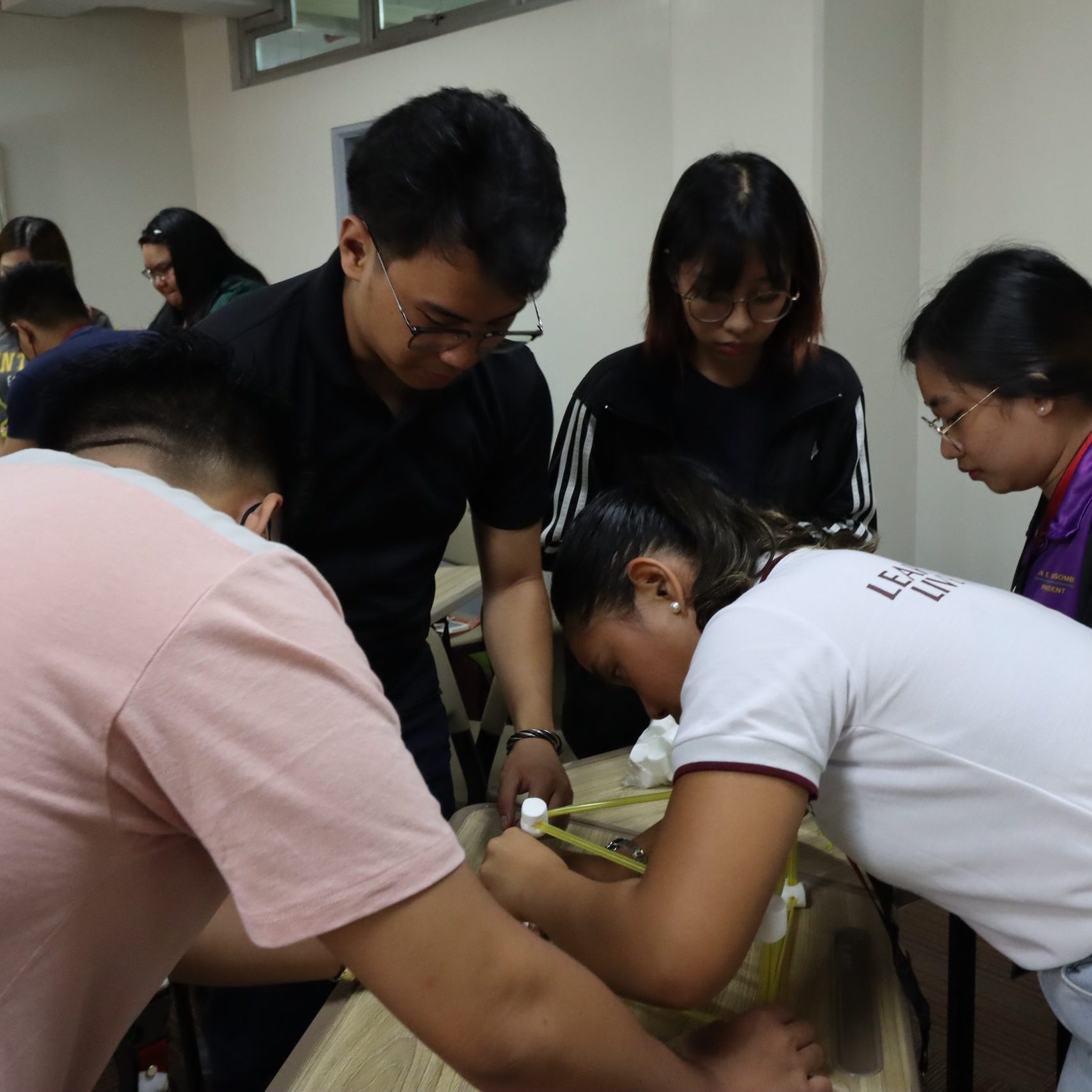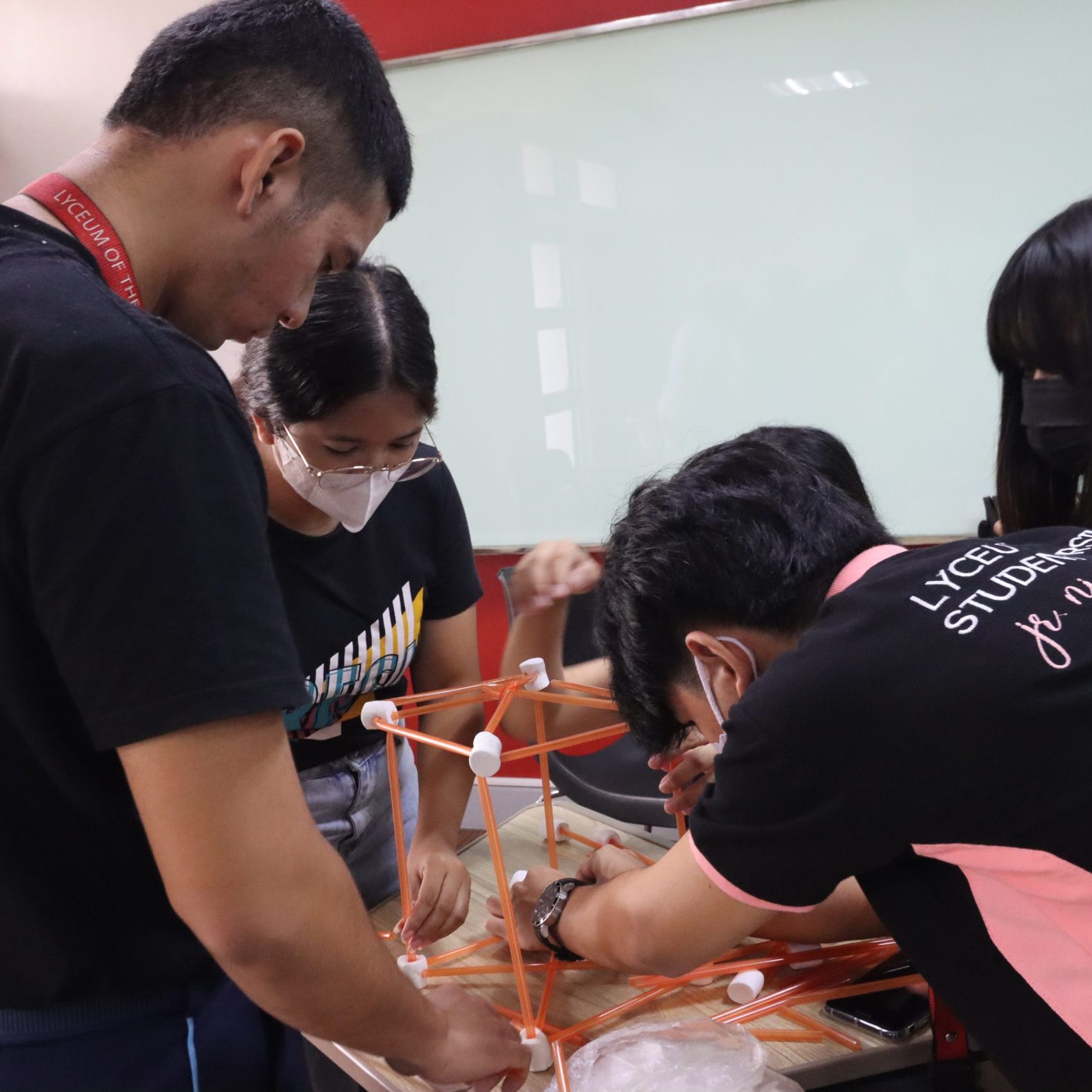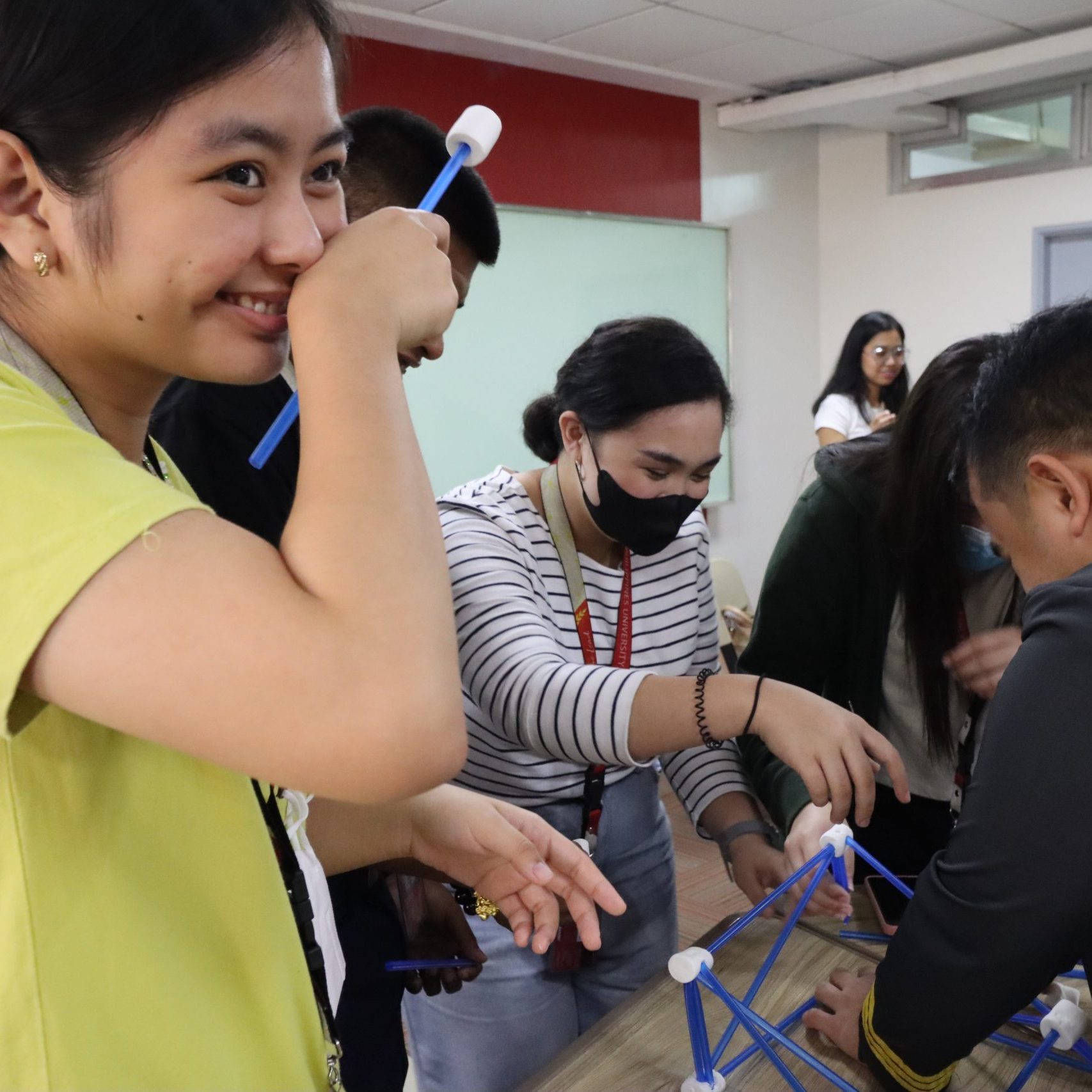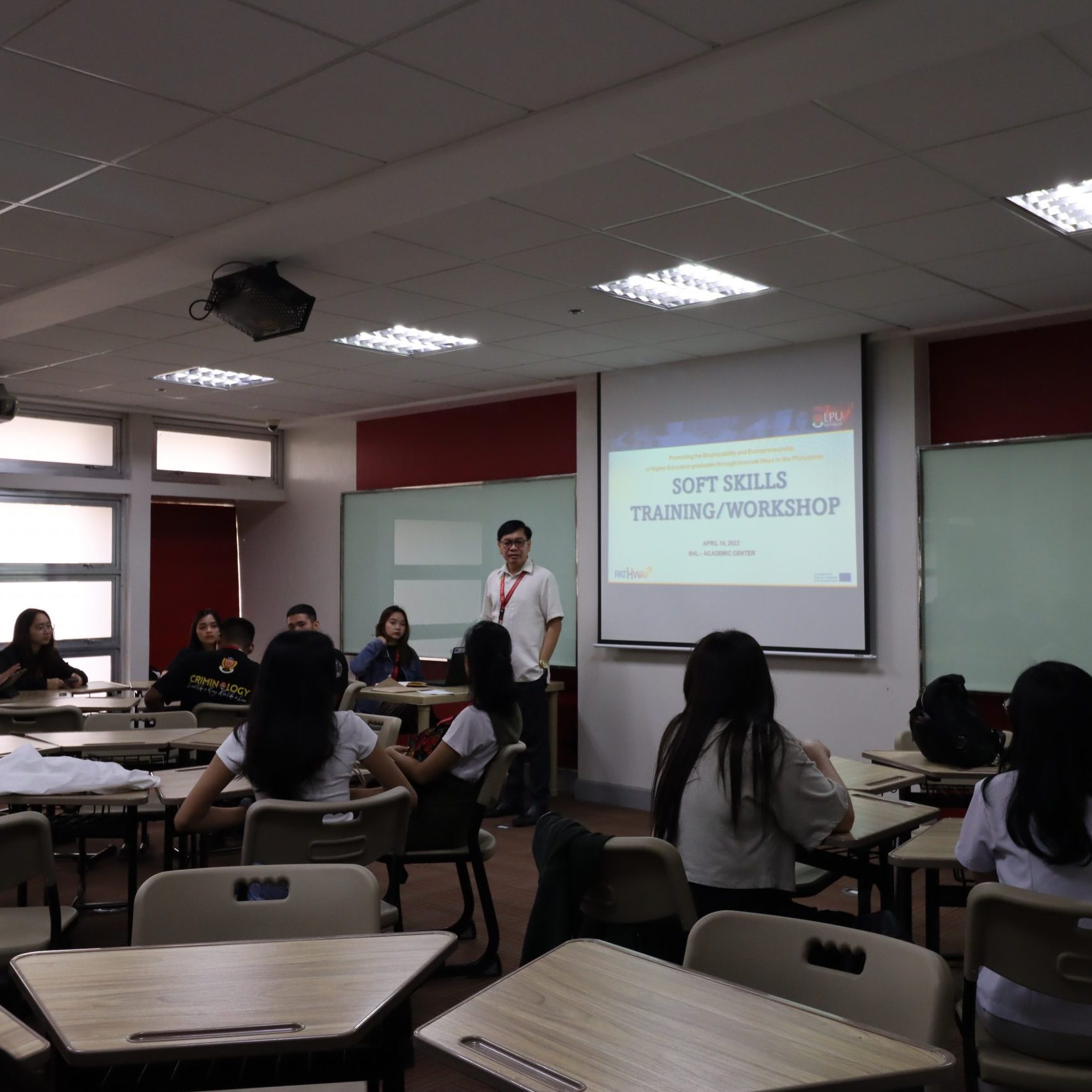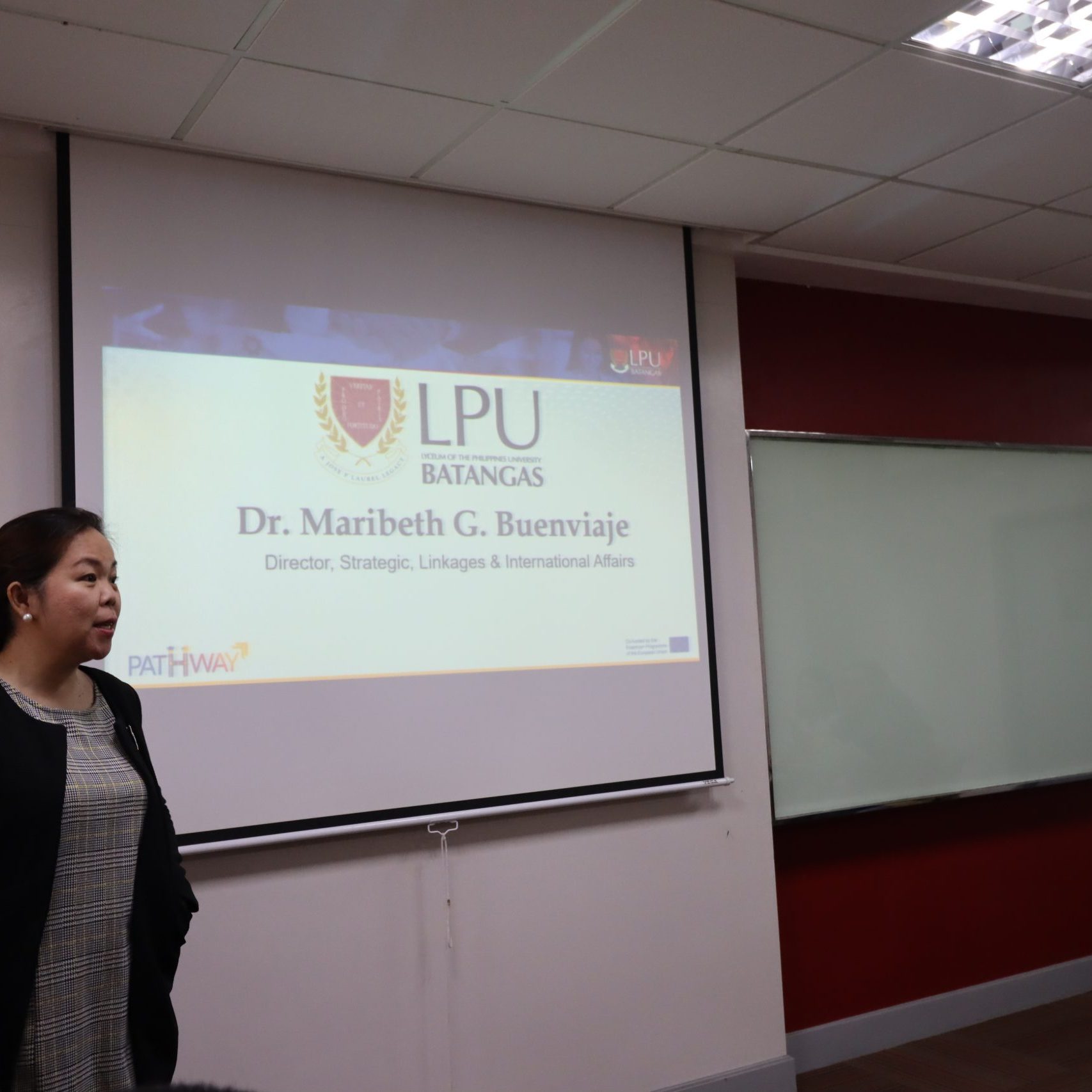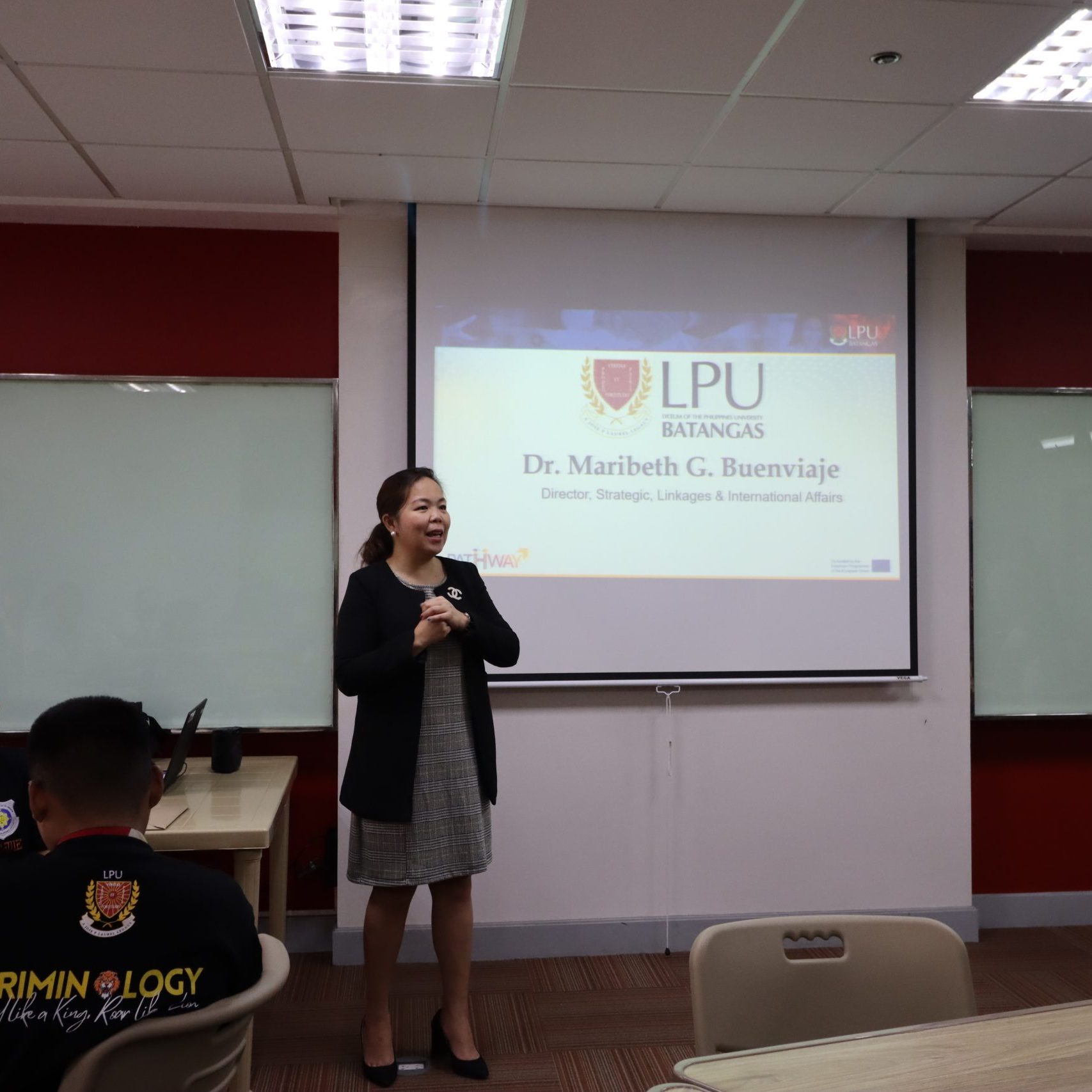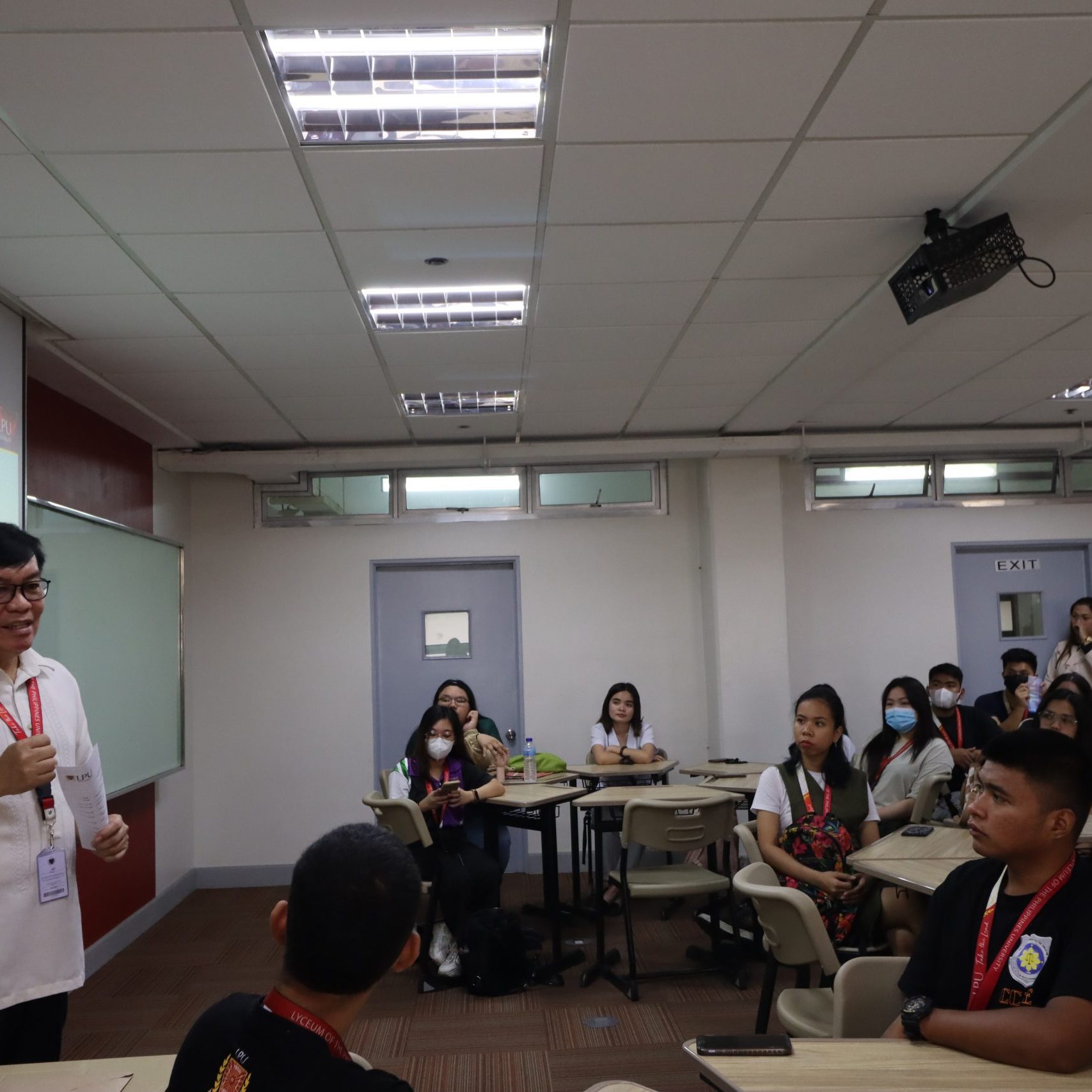A soft skills training workshop was held for student leaders at the Academic Center of Lyceum of the Philippines University-Batangas, organized by the Promoting the Employability and Entrepreneurship of High Education Graduates through Innovative WAYS in the Philippines (PATHWAY) Erasmus+ project, in collaboration with the Career Development, Alumni, and Placement Office (CDAP), April 14.
The discussions focused on the top four soft skills identified by a CDAP survey: accountability, organizational skills, teamwork/collaboration, and problem-solving abilities. The speakers presented simplified definitions and practical applications of each skill, and interactive activities were conducted to reinforce learning. The objective of the workshop was to equip students with the necessary soft skills to become successful employees and entrepreneurs.
Dr. Alex Ylagan, Director of CDAP, warmly welcomed the students and officials present, reminding them that LPU-B is fortunate to be able to collaborate with the European Chamber of Commerce of the Philippines (ECCP) in their initiative PATHWAY, which strives to prepare students to be successful employees and entrepreneurs. This would be beneficial especially for students as it allows them to build up and develop skills to become future employees or entrepreneurs.
Following this brief introduction, Dr. Maribeth G. Buenviaje, Executive Director for Strategic Communications, Linkages, and International, emphasized PATHWAY’s mission and goal of producing future employees and entrepreneurs. Another notable thing during her discussion was when she informed the student leaders of the findings of a previous survey conducted by CDAP of LPU-B regarding the soft skills that the student leaders here perceived to be the most crucial to develop.
Meanwhile, Dr. Rey Fernan G. Refozar, Dean of the College of Business Administration (CBA), discussed the first crucial soft skill: Accountability. According to him, accountability is an intrinsic skill that may be developed. He also introduced Dr. Roger Dean Duncan’s Accountability Ladder, a tool for evaluating one’s accountability level.
Furthermore, he mentioned that to truly understand and practice accountability, one must be aware of its process, which includes building relationships, outlining expectations clearly, taking responsibility, offering, or accepting continuous feedback, valuing individual differences, and having the necessary tools for success.
The second topic about organizational skills, on the other hand, was discussed by Dr. Sergel I. Dacut, Supervisor for Linkages and International Affairs. He summed up his definition of organizational abilities as the capacity to plan and direct one’s efforts toward completing tasks while making effective and efficient use of the resources at hand. The next section of his talk covered the 10 various sorts of organizational skills: time management, communication, goal setting, delegation, working under pressure, self-motivation, analytic thinking, attention to detail, decision-making, and strategic planning. As he went over each one, Dr. Dacut provided instances that were applicable and relatable to college students. The discussion’s key argument was that for one to consistently improve and enhance their organizing abilities, they must be well-balanced and habitually practiced.
The third soft skill, teamwork, and collaboration was then covered by Dr. Ma. Xenia Z. Bitera, Director for Center for Research and Innovation. She prepared an interactive group activity where the students were divided into five groups and were given three tasks to complete: pick a leader, think of a group name, and create a tower out of marshmallows and straws. The final task, however, involved a twist. Students were only allowed to utilize gestures and eye contact while doing it and were not allowed to speak orally or via writing; words; using smartphones was also prohibited. Dr. Alex was assigned to determine whether the tower constructed was sturdy enough to stand even after being lightly touched and shaken.
To make sense of and expound on the activity that was done, Dr. Xenia continued her discussion, using her own experiences to talk more about collaboration and teamwork. Dr. Annalie Patena did something similar when she discussed the final soft skill, problem-solving. Her advice was beneficial for applying problem-solving techniques in the industry. It was especially insightful for senior students who will soon enter the workforce and those in their upper years who will be deployed for their on-the-job training.
Generally, the workshop on soft skills training was very educational and engaging. The presentations of each speaker were simplified for everyone to easily comprehend and find them relatable. While it’s important for all professionals to have strong soft skills, they are particularly crucial for university students who are preparing to enter the workforce. Soft skills training is becoming an increasingly important part of university education. By helping students develop the interpersonal and communication skills they need to succeed in the workforce, this program is preparing the next generation of professionals for success.

